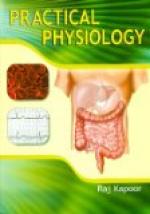This peculiar property of alcohol, its greedy absorption of water from objects in contact with it, acts also by absorbing liquids from the surface of the stomach itself, thus hardening the delicate glands, impairing their ability to absorb the food-liquids, and so inducing gastric dyspepsia. This local injury inflicted upon the stomach by all forms of intoxicants, is serious and protracted. This organ is, with admirable wisdom, so constructed as to endure a surprising amount of abuse, but it was plainly not intended to thrive on alcoholic liquids. The application of fiery drinks to its tender surface produces at first a marked congestion of its blood-vessels, changing the natural pink color, as in the mouth, to a bright or deep red.
If the irritation be not repeated, the lining membrane soon recovers its natural appearance. But if repeated and continued, the congestion becomes more intense, the red color deeper and darker; the entire surface is the subject of chronic inflammation, its walls are thickened, and sometimes ulcerated. In this deplorable state, the organ is quite unable to perform its normal work of digestion.[28]
172. Alcohol and the Gastric Juice. But still another destructive influence upon digestion appears in the singular fact that alcohol diminishes the power of the gastric juice to do its proper work. Alcohol coagulates the pepsin, which is the dissolving element in this important gastric fluid. A very simple experiment will prove this. Obtain a small quantity of gastric juice from the fresh stomach of a calf or pig, by gently pressing it in a very little water. Pour the milky juice into a clear glass vessel, add a little alcohol, and a white deposit will presently settle to the bottom. This deposit contains the pepsin of the gastric juice, the potent element by which it does its special work of digestion. The ill effect of alcohol upon it is one of the prime factors in the long series of evil results from the use of intoxicants.
173. The Final Results upon Digestion. We have thus explained three different methods by which alcoholic drinks exercise a terrible power for harm; they act upon the food so as to render it less digestible; they injure the stomach so as seriously to impair its power of digestion; and they deprive the gastric juice of the one principal ingredient essential to its usefulness.
Alcoholic drinks forced upon the stomach are a foreign substance; the stomach treats them as such, and refuses to go on with the process of digestion till it first gets rid of the poison. This irritating presence and delay weaken the stomach, so that when proper food follows, the enfeebled organ is ill prepared for its work. After intoxication, there occurs an obvious reaction of the stomach, and digestive organs, against the violent and unnatural disturbance. The appetite is extinguished or depraved, and intense headache racks the frame, the whole system is prostrated, as from a partial paralysis (all these results being the voice of Nature’s sharp warning of this great wrong), and a rest of some days is needed before the system fully recovers from the injury inflicted.




